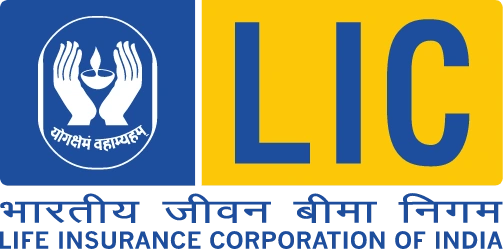Enjoy Seamless Transactions Anytime, Anywhere

Auto Insurance

Pet Insurance

Home Insurance

Health Insurance
Got Your Insurance in Mind? Jump In and Get Started Now!




Health Insurance

Auto Insurance

Pet Insurance
Bringing You Unmatched Value with Leading Insurance Partnerships








Your confidence in us is our top priority.
I saved $300 on my car insurance in less than 10 minutes with GetInsure!”
– Sarah T., Texas

GetInsure made finding the perfect policy simple and stress-free. Highly satisfied!
– Mark D., California

Discover Top Articles & Resources Tailored for Your Needs

The choice of the Personal loan lender is significant to make because such a choice will either make or ruin

Personal loans exist in today's American financial landscape in a way by which most get to manage their expenses, get

Looking ahead in the future, purchasing life insurance is a good investment that will grant you peace of mind and

Auto insurance is a necessary expense for anyone who owns or drives a car. It's important to have the right

Auto insurance is one of those necessary expenses that we all have to deal with. We need it to protect
A credit card is a financial tool issued by banks or financial institutions that allows individuals to borrow money up to a predetermined limit for purchases, bills, or cash advances. It operates on the principle of “buy now, pay later,” offering consumers convenience, flexibility, and the opportunity to build credit history. Credit cards can significantly impact one’s financial health, serving as a powerful tool for managing expenses, establishing credit, and accessing financial perks. However, they require disciplined usage to avoid financial pitfalls.
Main Goals of Credit Cards
Types of Credit Cards
Credit cards cater to diverse financial needs and lifestyles. Common types include:
Positive Impact on Financial Health
With informed and disciplined usage, credit cards can become a cornerstone of a robust financial strategy.

Credit card services extend beyond the card itself, offering a suite of features and benefits designed to enhance the user experience, provide financial flexibility, and add value to purchases. From rewards programs to security features, these services empower cardholders to manage their finances more effectively.
Key Benefits of Credit Card Services
Why Credit Card Services Matter
Credit card services enhance the overall user experience by combining convenience, financial flexibility, and rewards. They empower consumers to optimize spending, protect purchases, and maintain financial security. When utilized strategically, these services can make a significant difference in financial planning and day-to-day transactions.

While credit cards offer numerous benefits, they also come with potential risks if not managed responsibly. Misuse can lead to financial distress, damaged credit, and overwhelming debt. Understanding these risks is crucial for maintaining financial health.
Potential Pitfalls of Credit Card Usage
Tips for Responsible Credit Card Usage
Conclusion: A Balanced Approach to Credit Cards
Credit cards are powerful financial tools that can enhance purchasing power, provide rewards, and build credit when used wisely. However, they require careful management to avoid common pitfalls like debt accumulation, high-interest costs, and negative impacts on credit scores.
Understanding the benefits and risks of credit card usage allows consumers to harness their advantages while minimizing drawbacks. With informed decision-making and responsible usage, credit cards can be a cornerstone of a strong and stable financial strategy.

GetInsure is rated 4 out of 5 stars based on 500 reviews!

 What is a credit card, and how does it work?
What is a credit card, and how does it work? A credit card lets you borrow money for purchases up to a set limit. You’re billed monthly and can avoid interest by paying the full balance.
 How can I apply for a credit card?
How can I apply for a credit card? Apply online or at a bank by submitting your ID, income proof, and credit history details. Approval depends on eligibility criteria.
 What are the types of credit cards available?
What are the types of credit cards available? Types include rewards cards, cash-back cards, secured cards, balance transfer cards, travel cards, and business cards, each designed for specific financial needs.
 What affects my credit card approval?
What affects my credit card approval? Approval depends on your credit score, income, debt-to-income ratio, and employment stability. A high credit score improves your chances.
 How does interest on credit cards work?
How does interest on credit cards work? Interest applies to unpaid balances after the grace period. Rates vary by card type, usage, and your creditworthiness. Paying in full avoids interest.
 Can using a credit card improve my credit score?
Can using a credit card improve my credit score? Yes, responsible usage like timely payments and keeping balances low can improve your credit score over time.
 Are there fees associated with credit cards?
Are there fees associated with credit cards? Fees may include annual fees, late payment fees, foreign transaction fees, and cash advance charges. Always review terms before applying.
 What should I do if I lose my credit card?
What should I do if I lose my credit card? Immediately report the loss to your card issuer to block unauthorized use. They’ll issue a replacement card.
 What is a credit card’s grace period?
What is a credit card’s grace period? A grace period is the time between the statement date and due date. No interest is charged if the full balance is paid during this period.
 What should I look for in a credit card?
What should I look for in a credit card? Consider factors like interest rates, fees, rewards programs, credit limit, and additional perks like travel insurance or fraud protection.
Discover Top Articles & Resources Tailored for Your Needs

The choice of the Personal loan lender is significant to make because such a choice will either make or ruin

Personal loans exist in today's American financial landscape in a way by which most get to manage their expenses, get

Looking ahead in the future, purchasing life insurance is a good investment that will grant you peace of mind and

Auto insurance is a necessary expense for anyone who owns or drives a car. It's important to have the right

Auto insurance is one of those necessary expenses that we all have to deal with. We need it to protect
Find, Compare, and Secure Your Ideal Coverage Effortlessly.
© Getinsure. All Rights Reserved.
Terms of Use
Privacy Policy
Cookie Preferences
Unsubscribe
Cookie Preferences
Do not sell my information / CCPA

© Getinsure. All Rights Reserved.